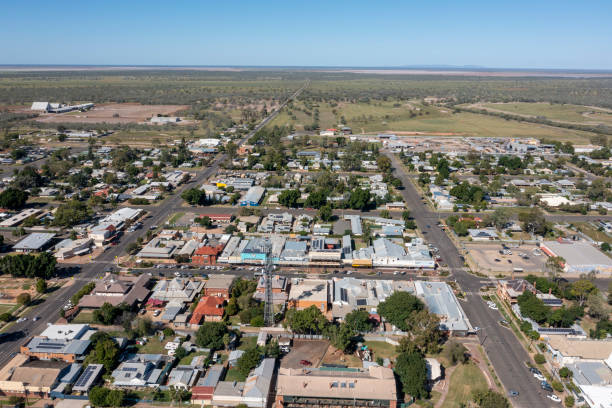Farmers at boiling point over connectivity gaps - NFF
Paula Doran
24 December 2024, 4:40 AM

Farm advocacy groups are united in their frustration on connectivity gaps.
Both NSW Farmers and the National Farmers’ Federation say the findings of a recent federal review into telecommunications were not unexpected, and greater work needs to be done to amend the nation-wide black spots.
This comes after the Federal Government committed to processing the recommendations provided by the Regional Telecommunications Independent Review Committee (RTIRC) 2024 and taking action to improve connectivity in the regions.
Undertaken every three years, the review is an opportunity for people living and working outside major cities to share their experiences, views and expectations regarding connectivity and telecommunications services.
The community response to the 2024 review was unprecedented, with a four-fold increase in participation on the 2021 review.
In total, more than 4,000 stakeholders took part and more than 3,000 survey responses were received.
The report’s 14 recommendations address enhanced mobile coverage and affordability, universal service, First Nations inclusion and digital literacy.
Greater investment needed – NSW Farmers
The Committee noted how recent technology developments have resulted in new and emerging services that could be considered as part of a modernised Universal Service Obligation (USO).
NSW Farmers Rural Affairs Committee Chair Deb Charlton said the findings of this latest telecommunications review were no surprise. “Major telecommunications challenges remain for rural communities, and those challenges include poor connectivity.
“NSW Farmers is calling for investment to drive reliable, expanded connectivity for farming communities, so we can conduct our business and go about our lives,” she said.
“Work to increase mobile network capacity, service quality and resilience is essential, as is work to reduce black spots in rural areas.”
Frustration is at boiling point - NFF
While welcoming the report, the National Farmers’ Federation (NFF) said urgent action was needed to address connectivity gaps at a time when frustrations at a high.
NFF President David Jochinke said: “frustration over rural connectivity is at boiling point, and the four-fold increase in engagement in the 2024 review proves that.”
“Systemic frustration with connectivity in rural areas has blown up following the 3G network shutdown.
“It’s the perfect storm for farmers at the moment – navigating mobile blackspots, changes to service quality and the loss of some coverage which wasn’t guaranteed post 3G shutdown while managing harvest logistics and bushfire season.
“It’s an incredibly busy and stressful time of year and throw connectivity issues into the mix and you have farmers fed up to the back teeth.”
The NFF is calling on the major providers to step up their efforts to address coverage concerns, but acknowledge they can’t act on problems if they aren’t reported.
“This is a two-way street. It’s on farmers to bring issues to the providers’ attention. But equally we are calling on the major providers to step up – get out in these communities and be proactive. We need to know that if farmers go out of their way to raise issues, they will get a timely explanation,” Mr Jochinke said.
Solutions needed yesterday
The NFF is also calling for urgent public investment to accelerate regional connectivity outcomes.
“The time is now to supercharge this agenda. We recognise the Federal Government’s substantial investment in the Better Connectivity Plan for Regional and Rural Australia.
“Supercharging initiatives like the Mobile Black Spot Program, the On-Farm Connectivity Program, Regional Roads Australia Mobile Program and the Regional Tech Hub will be critical coming into the next federal election.
“Telecommunications services are essential for farm safety, healthcare, education and productivity.
“Our rural communities need solutions and, frankly, we needed them yesterday.”
View the Regional Telecommunications Independent Review Committee here.



